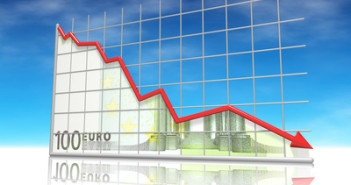Euro/dollar is gradually drifting towards the year’s low and suffers from unconvincing bounces. In Greece, some polls show a lead for the pro-bailout parties for a change and some of the worries of a bank run are downplayed for now. Nevertheless, Spain is in deeper trouble, with talks about a silent bank run on Bankia combined with the downgrade of Spanish banks by Moody’s. G-8 leaders are meeting in Camp David. Will they pop a coordinated solution? Will it be a contingency plan for the Grexit? The European Commission denies it at the moment. Will we see an exciting close to an exciting week?
Here’s an update on technicals, fundamentals and what’s going on in the markets.
EUR/USD Technicals
- Asian session: EUR/USD kept drifting lower, holding on to the 1.2660 during the Asian session, and dipping below afterwards.
- Current range: 1.2660 to 1.2760.

- Further levels in both directions: Below: 1.2660, 1.2623 and 1.2587.
- Above: 1.2760, 1.2873, 1.29, 1.2960, 1.30, 1.3050, 1.3110, 1.3165, 1.3212, 1.33 and 1.34.
- The open weekend gap (again) provided bearish sign for the rest of the week.
- 1.2760 is providing weak resistance to the pair.
- The year to date low of 1.2623 is the critical cliff. In historic terms, 1.2587 below is even more important.
Euro/Dollar drifting lower – click on the graph to enlarge.
EUR/USD Fundamentals
- 6:00 German PPI. Exp. +0.4%. Actual +0.2%.
 For more events later in the week, see the Euro/dollar
EUR/USD Sentiment
- Moody’s downgrade Spanish banks: The euro-area’s fourth largest country is suffering: rating agency Moody’s downgraded 16 Spanish banks, including Santander, BBVA and Caixabank, who all received an A3 rating.  Spain may need to use its  “plan C†for a worsening situation is underway sooner than later. Moody’s also downgraded a few Spanish regions. This comes after there was talk that over 1 billion euros were withdrawn from Bankia, which was just nationalized.
- Greek polls lean towards a pro-bailout party for a change: Center right mainstream party New Democracy is in the lead again, according to fresh polls. While it is predicted to receive only around 20%, this matters, as the party that comes out first receives a bonus 50 seats (one sixth) in parliament. Greeks will return to the polls on June 17 after coalition talks failed. The SYRIZA party, which campaigned against the bailout and is running high in the polls,  Will Greece simply walk away from the international aid package?  If this nightmarish scenario unfolds, a senior European analyst has warned that the country may simply run out of money and descend into chaos.
- Grexit wheels in motion: Most Greeks don’t like austerity, but prefer staying in the euro-zone. They might vote for pro-bailout parties, but it may be too late.  Nervous depositors have been withdrawing their deposits from Greek banks. Others are deferring their tax payments, and also the electricity company in charge of collecting property taxes just doesn’t collect them. Greece’s coffers are a bit dry. World Bank President Robert Zoellick said that a Greek exit could undermine confidence in the Euro-zone and lead to (yet) another liquidity crisis. In a further development, the ECB has stopped providing liquidity to several Greek banks as they are severely under capitalized, and has shifted them to an emergency liquidity assistance program.
- G-8 Leaders Meet: Differences between new French president François Hollande and German chancellor Angela Merkel are still wide. But with the situation in Europe rapidly deteriorating, the two leaders will now meet on the global stage. US President Obama hosts the G-8 Summit in Camp David, and coordinated action and leadership is needed. The G-20 summit in Cannes was a complete disaster, and with the differences between European powers and the worsening situation, one can hope that some big move will happen now, like in 2009. The leaders could also come to the conclusion that Greece is leaving the euro for sure, and that a contingency plan needs to be put in place. See how to trade the Grexit with EUR/USD.
- Italian economy free falling: Germany’s outstanding growth, 0.5%, saved the euro-zone from a recession. Yet the 0% growth in Q1 for the zone doesn’t tell the whole story. Italy’s economy contracted for the third consecutive quarter, with the pace accelerating in Q1 to 0.8%.
- US Economy Shaky :Â Also US data has been leaning lower: weak retail sales and the negative Philly Fed Index are quite worrying, but the NY Fed Index was good and jobless claims are falling. Uncertainty is high.
- Fed Ready to Act, But Not Soon: The meeting minutes from the recent Fed decision have shown that “several†members consider more easing (possibly QE3). This is more than “a couple†last time. Nevertheless, with the economy still growing and inflation a bit above target, there is no hurry for now, at least not until the European situation is significantly felt in the US. A passive monetary policy of low interest rates for the foreseeable future may not make for dramatic moves in market.



